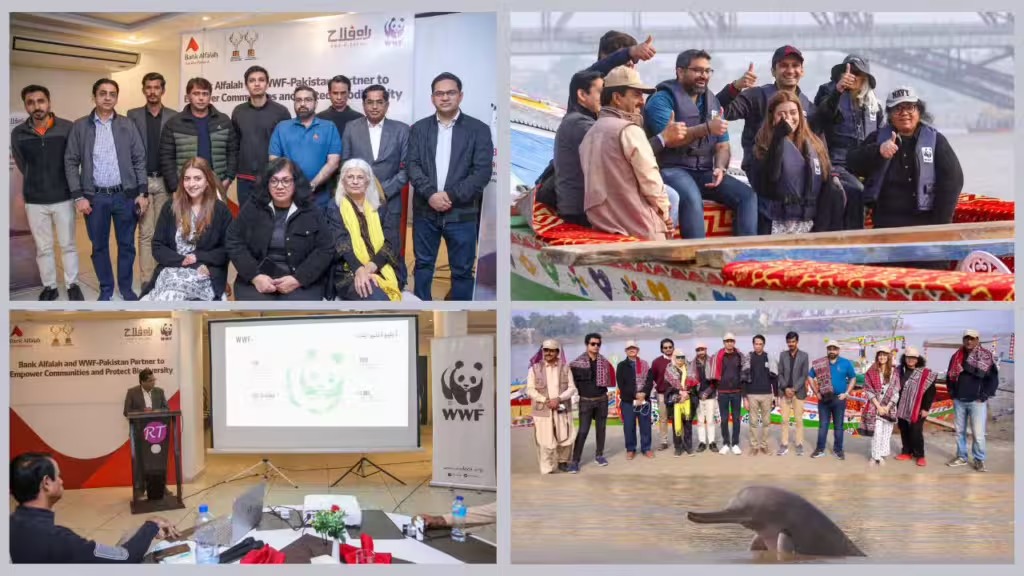Islamabad, Dec 26: Bank Alfalah, one of Pakistan’s leading commercial banks, has pledged PKR 8.5 million in a new initiative to protect the endangered Indus River blind dolphin, in collaboration with WWF-Pakistan. This commitment follows the bank’s earlier pledge to plant 100,000 trees to combat climate change. The new project aims to engage local communities and build long-term conservation efforts to safeguard this unique species of dolphin, which is on the International Union for Conservation of Nature’s (IUCN) Red List as endangered.
The initiative includes several key components: the establishment of five Community-based Organizations (CBOs) to engage local communities in conservation, the training of 35 fishers, the creation of 10 nature clubs to involve youth, and empowering 700 students to become conservation advocates. Through these efforts, Bank Alfalah and WWF-Pakistan aim to raise awareness and build the capacity of communities to protect the Indus River dolphin, locally known as “Bhulan.”
The Indus River dolphin has seen its population decline dramatically, now occupying only 20% of its historical range due to multiple threats, including habitat loss, entanglement in fishing nets, and pollution. The situation has worsened in recent years, with climate change affecting the river’s flow patterns and water temperatures, further jeopardizing the dolphins’ habitat. The 2022 floods have also exacerbated these threats by increasing sediment, debris, and pollutants in the water, compounding the risks faced by these endangered creatures.
To combat these challenges, the program focuses on community engagement, youth empowerment, capacity building, and sustainable eco-tourism. The bank and WWF-Pakistan are working to foster environmental stewardship among local communities through awareness campaigns, eco-tourism initiatives, and creating eco-guides. Additionally, the initiative will promote the cultural significance of the dolphin through community events and heritage tours, helping to preserve both the species and the cultural history tied to it.
Madiha Javed Qureshi, Head of Corporate Communication at Bank Alfalah, emphasized the significance of the collaboration, stating that it not only aims to safeguard the dolphin population but also encourages local communities to actively participate in the conservation effort. She also highlighted the bank’s ongoing environmental initiatives, such as its mangrove plantation project, which aims to plant 100,000 mangroves by 2027.
Bank Alfalah has also demonstrated its commitment to sustainability with its Head Office receiving a Green Building certification from WWF-Pakistan. Moreover, the bank’s humanitarian response to the 2022 floods, including a USD 10 million contribution to flood-impacted communities, further reinforces its dedication to both social and environmental responsibility.
This partnership with WWF-Pakistan supports Bank Alfalah’s broader sustainability goals, contributing to the United Nations Sustainable Development Goals (SDGs), particularly SDG 11 (Sustainable Cities and Communities) and SDG 14 (Life Below Water). Through this multifaceted approach, Bank Alfalah aims to not only protect the Indus River dolphin but also inspire sustainable environmental practices across Pakistan.
